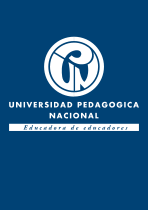Teoría del conocimiento pedagógico.

Citación
Fecha
2018-07-01Autor
De Conti, Manuele
Enlace al recurso
https://revistas.pedagogica.edu.co/index.php/PYS/article/view/8179Keyword
PedagogyKnowledge
Truth
Minimalism
Alethic pluralism
Pedagogía
Conhecimento
Verdade
Minimalismo
Pluralismo alético
Metadatos
Mostrar el registro completo del ítemResumen
En este artículo de reflexión se observa que la presentación de los resultados de las ciencias pedagógicas como científicos, acompañada por la crítica de la racionalidad científica, muestra la ausencia de una teoría epistemológica coherente y capaz de justificar formas de conocimiento que no se pueden reconducir a la ciencia positivista. Para solucionar este impase, se indaga tal contradicción y se desarrolla una reflexión sobre la teoría de la verdad pluralista, más comúnmente llamada pluralismo alético, capaz de unificar las diferentes formas de conocimiento pedagógico. El artículo concluye, primero, que la concepción tripartita del conocimiento es inadecuada para definir un concepto genérico de conocimiento; segundo, que la pedagogía no conoce el objeto de estudio propio solo en términos de conocimiento científico; y tercero, que es posible localizar una concepción de conocimiento que integre y permita la valorización de las diversas formas de conocimiento que habitan la pedagogía.
Abstract
This reflection article shows that the presentation of results of pedagogic sciences, such as scientific results, together with the critique of scientific rationality, reveals the absence of a coherent epistemological theory capable of justifying forms of knowledge that cannot be traced back to positivism. To solve this impasse, in this paper I investigate the origins of this contradiction and use my findings to reflect on the pluralistic theory of truth, most commonly referred to as “alethic pluralism,” capable of unifying the different forms of pedagogic knowledge. The article concludes, first, that the tripartite conception of knowledge is inadequate for the generic concept of knowledge; second, that pedagogy doesn’t know the object of its own study in terms of scientific knowledge; and third, that it is possible to locate a conception of knowledge that integrates and allows the valorization of the different forms of knowledge that constitute pedagogy.
Editorial
Editorial Universidad Pedagógica Nacional
Fuente
Colecciones
- Pedagogía y Saberes [660]
